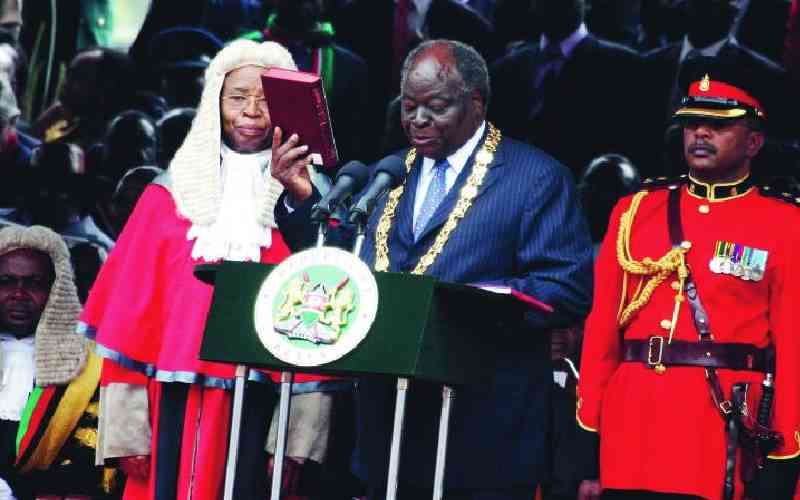
The results from Odinga strongholds were tallied and released first, while the tallying and release of those from Kibaki strongholds were deliberately withheld and delayed to facilitate the manipulation of the tallying process. In the case of some constituencies, parliamentary results were announced while presidential results were held back.
 The Standard Group Plc is a multi-media organization with investments in media
platforms spanning newspaper print
operations, television, radio broadcasting, digital and online services. The
Standard Group is recognized as a
leading multi-media house in Kenya with a key influence in matters of national
and international interest.
The Standard Group Plc is a multi-media organization with investments in media
platforms spanning newspaper print
operations, television, radio broadcasting, digital and online services. The
Standard Group is recognized as a
leading multi-media house in Kenya with a key influence in matters of national
and international interest.










